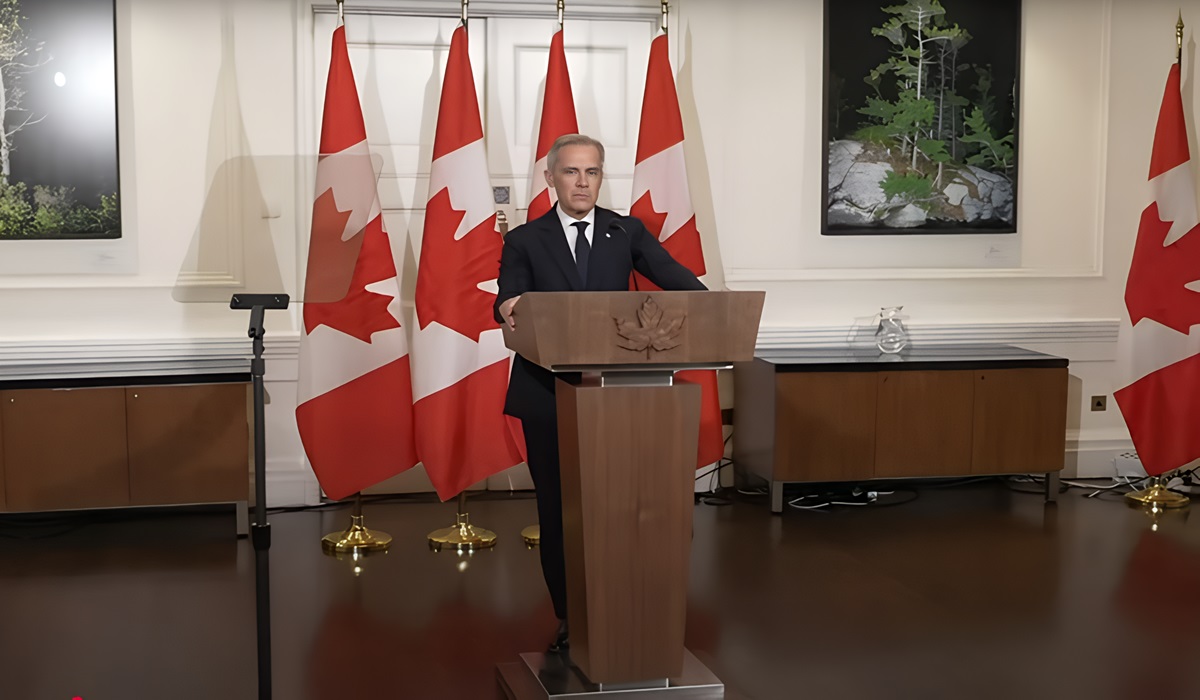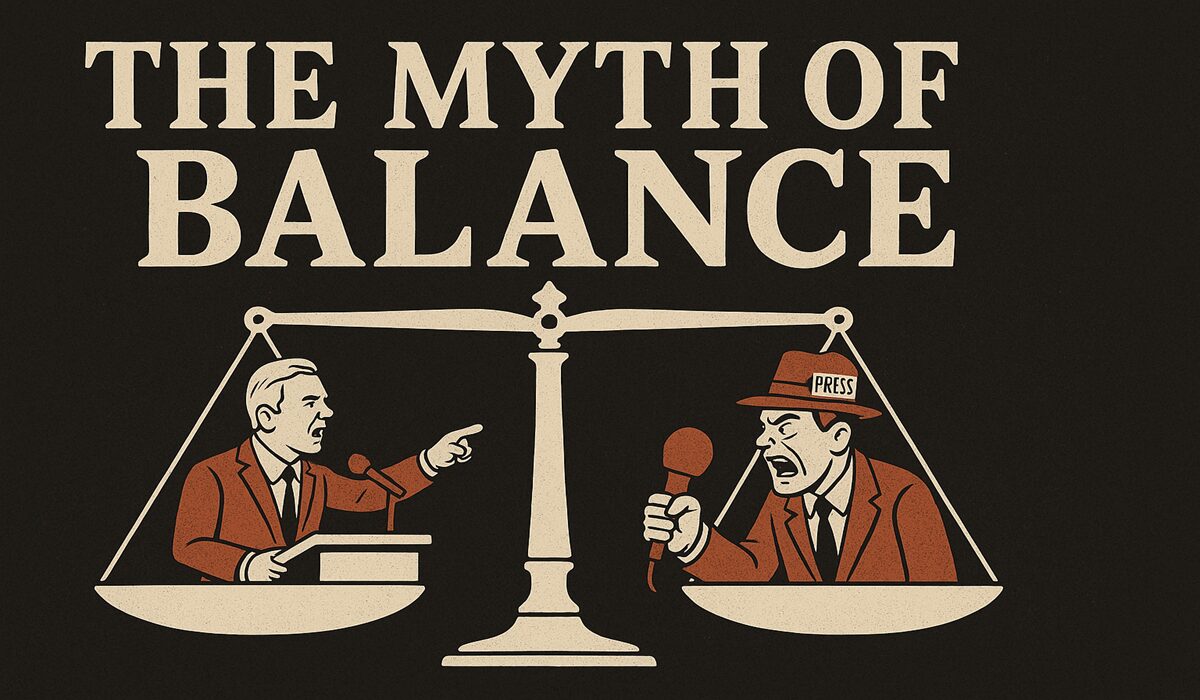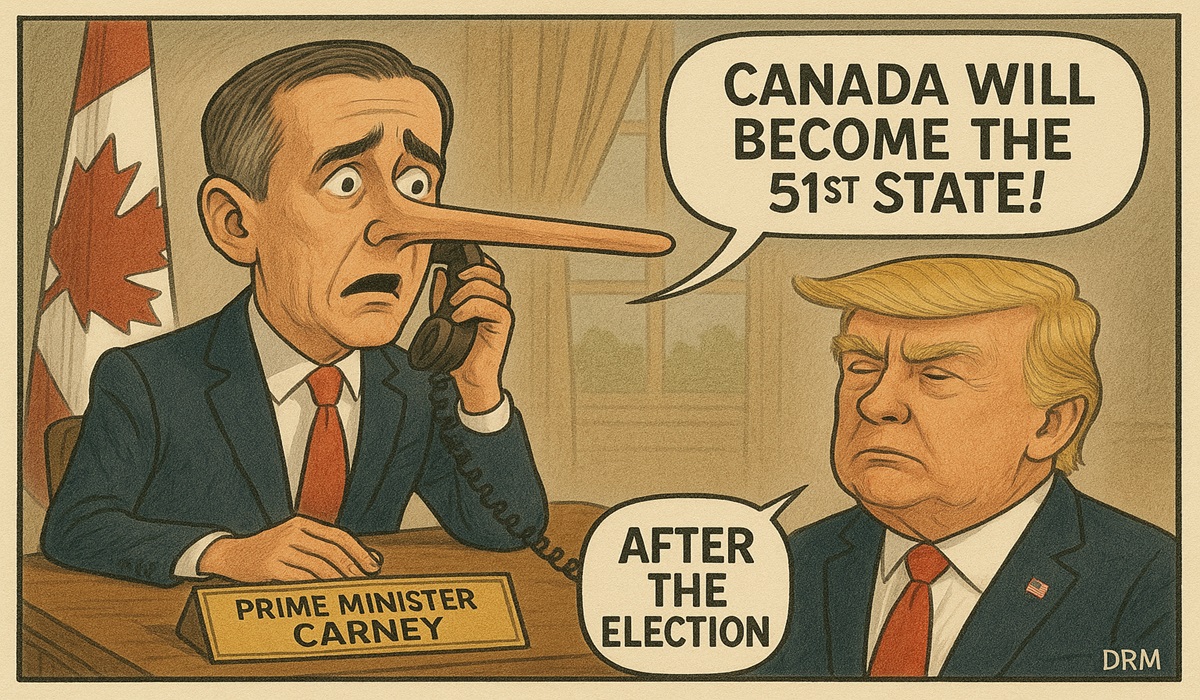New Canadian Prime Minister Floats Idea Of EU Ascension
- Ingrid Jones
- Europe
- D.O.C Supplements - Trending News
- March 18, 2025

Canadian Prime Minister Mark Carney, while abroad, has floated the idea of Canada joining the European Union—a proposal so far-fetched it immediately begs the question: Is this serious policy, or just another grand political performance?
Let’s start with the obvious: Canada is not in Europe. The European Union, for all its expanding influence, is still fundamentally a political and economic union of European states. Geography alone makes Canada’s membership an absurdity. If the EU is willing to make an exception for Canada, then what about Japan? Australia? Where does this end?
Beyond the geographical problem, there’s the issue of what it would actually mean for Canada to become an EU member. The EU isn’t just a trade bloc; it’s a deep political and economic union that requires significant concessions from member states. Canada would have to cede substantial sovereignty, including allowing EU law to take precedence over domestic legislation in key areas. That means Brussels would gain influence over Canada’s trade policy, environmental standards, and possibly even taxation. Canada would also have to adopt EU regulations, including those governing labor laws, data protection, and product standards. Would Canadians be comfortable with the European Court of Justice having jurisdiction over Canadian law? Would they be willing to accept EU free movement rules, potentially allowing visa-free migration from EU states, something that could have serious economic and political implications?
There’s also the issue of the euro. While not all EU countries have adopted the currency, new members are expected to work towards it. Would Canada be willing to ditch its own central bank policies in favor of the European Central Bank’s control over monetary policy? Given Canada’s existing financial system and its trade relationships, that’s a non-starter.
And then there’s the approval process. Becoming an EU member is not a simple matter of signing a few documents. It requires the unanimous approval of all existing EU members, a process that has stalled Turkey’s membership for over two decades. Even if the EU miraculously agreed to let Canada apply, negotiations would take years, if not decades. By the time any serious steps were taken, Carney would almost certainly be long out of office.
More practically, Canada already enjoys extensive trade agreements with the EU. CETA (the Comprehensive Economic and Trade Agreement) has been in place for years, eliminating most tariffs and providing Canadian businesses with access to the European market. Canada is also a member of other major trade agreements like the USMCA (the revamped NAFTA) and the CPTPP, linking it with the Pacific region. What exactly would EU membership provide that Canada doesn’t already have?
For Carney, this announcement could be little more than a political distraction—a flashy headline that makes him look ambitious on the world stage while avoiding pressing domestic issues back home. The idea is so impractical, so far from reality, that it’s hard to see it as anything other than smoke and mirrors. Canadian citizens haven’t been clamoring for EU membership. The business community isn’t demanding it. The only people who might benefit from this conversation are politicians looking for a diversion.
Even in the best-case scenario where the EU seriously entertained Canada’s membership, this wouldn’t be a project that comes to fruition in Carney’s tenure, or even in the next one. More likely, it’s the kind of proposal that generates a lot of noise and then quietly fades into obscurity when reality sets in.
The truth is, Canada doesn’t need to be part of the EU. It already has deep economic and diplomatic ties with Europe while maintaining its independence. The idea of abandoning that independence to join a club that doesn’t even make geographic sense is, at best, a curious thought experiment—and at worst, a sign that Carney is more interested in making headlines than making realistic policy.








